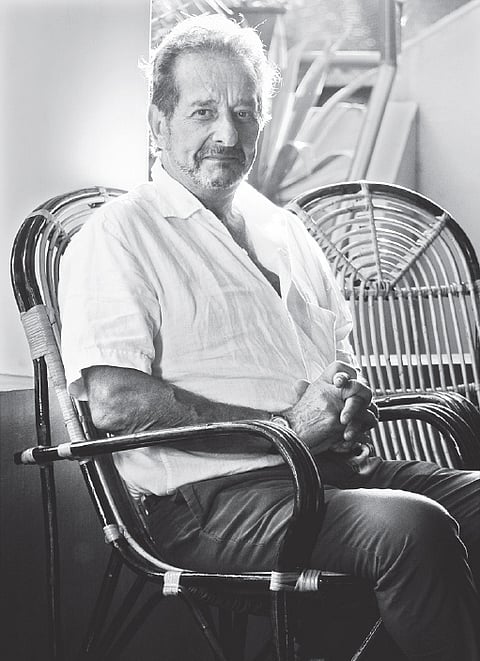

KOCHI: He has seen many a war, has seen men fighting for treasures buried deep in the Africas, sectarian wars and much more around the world. Having travelled to almost 105 countries in a journalistic career that span almost 30 years there is nothing that Patrice Vanoni has not seen or experienced.
The renowned international reporter and worldwide correspondent was in the state recently as part of a programme organised by the Alliance Francise.
Vanoni who started his journalistic career as a freelance reporter writing short pieces for dailies, very early on in his career made his mark not only in some of the leading newspapers but also in the radio and television as well.
“I utilised my vacations by travelling around the world covering new and interesting stories,” Vanoni quips.
Vanoni who likes to stay away from politics, always concentrated on human interest stories. He reported about French people, issues that dealt with them, stories of people in South American prisons and the like. “Going about doing the stories that I did, was never easy. But nonetheless it was worth the trouble. For example, it was very difficult getting into these South American prisons because it is not easily accessible to everyone and there are lots of formalities. I had prisoners telling me that they were falsely implicated, and the like.”
“Just in the African continent alone I have been to 47 countries. Films like ‘Blood Diamond’ really depict what goes on in these places. People dig holes as big as craters in search of diamonds, people kill for it,”” says Vanoni.
It is by putting his life at great risk that Vanoni covered most of his stories. Sometimes they get suspicious when they see the journalists with cameras and so on, he says. Sometimes they use us to negotiate matters, but that was it. Things never went to point as it is today where journalists are captured and beheaded, he adds. “It is not without risk that I did all of it. There is thrill in that too because we got lot of respect for what we did. Back then there weren’t many war reporters as there is now,” he says.
“Though I was interested in politics sometimes I was required to do that as well. For example, while I was in Africa apart from covering the internal conflicts, ethnic wars and the like I also interviewed presidents and other leaders.”
Interestingly Vanoni have also been expelled from Sri Lanka while he was reporting about the LTTE.
Asked about the nature in which journalism is practiced today he says, “Journalists today are in a better position and are at a greater advantage as information is on their fingertips. They get all that they have to know in a matter of few seconds. But then again, today everybody is in a rush to break news and is under such huge pressure because of the rising competition. Again because of the competition nobody has the time to really find out the facts and report a story as it is required.”
When he is not busy travelling and covering stories Vanoni likes to spend time with his motorcycle. The motorcycle enthusiast that he is, Vanoni has also written a book on motorcycles. His book mainly deals with how motorcycles are becoming a rage among the young and how it is becoming a social phenomena, and also about the sociological aspect connected with the whole craze.
Vanoni also has many documentaries to his credit. Asked if he ever found anything of interest in India that he could document on, pat came the reply, “I have an idea for a documentary but it is still in the nascent stage. I have plans to make documentary on juvenile prisons in India, trafficking and the like. It has to get an approval and if it does I will go ahead with my work.”